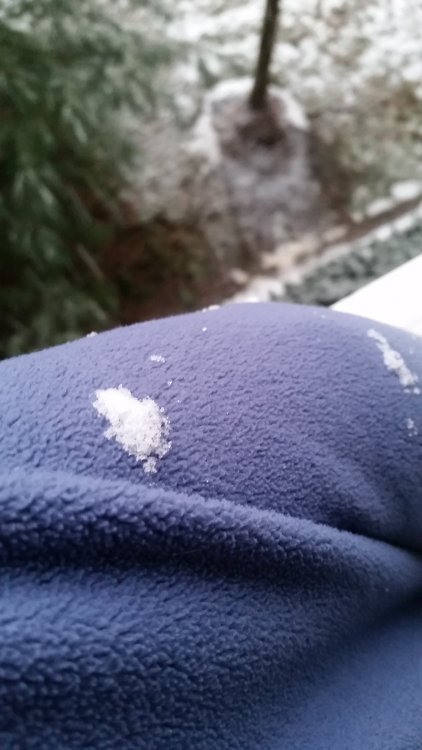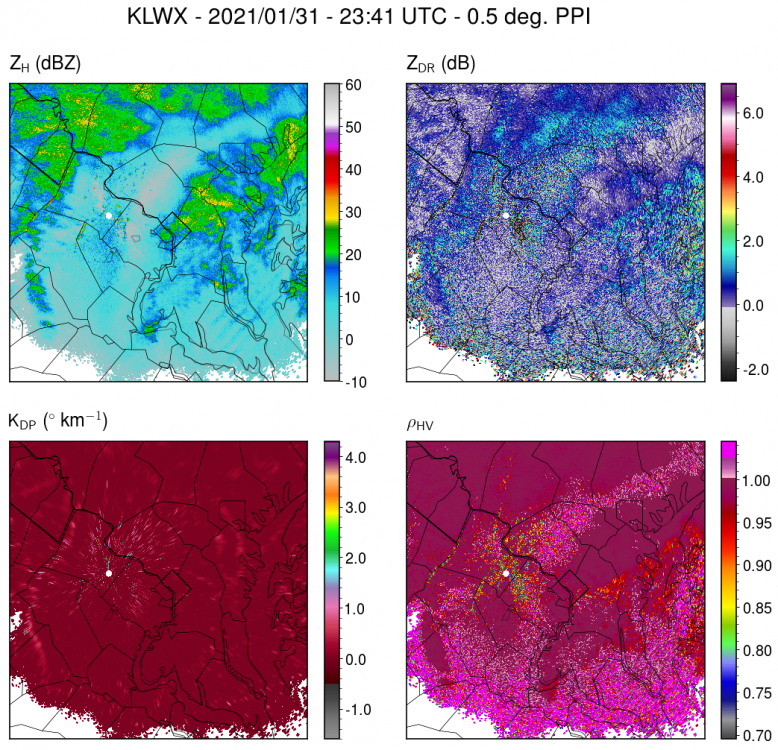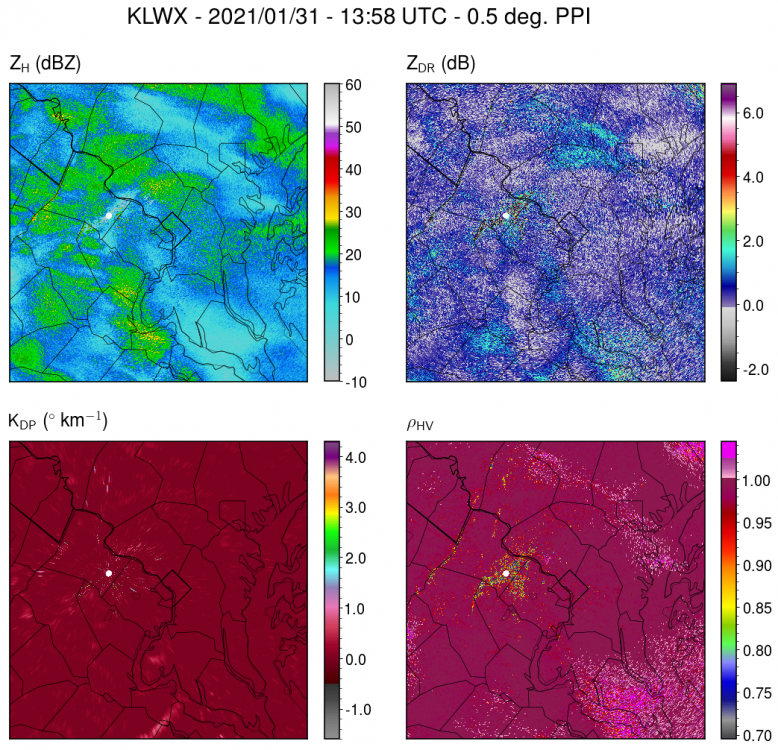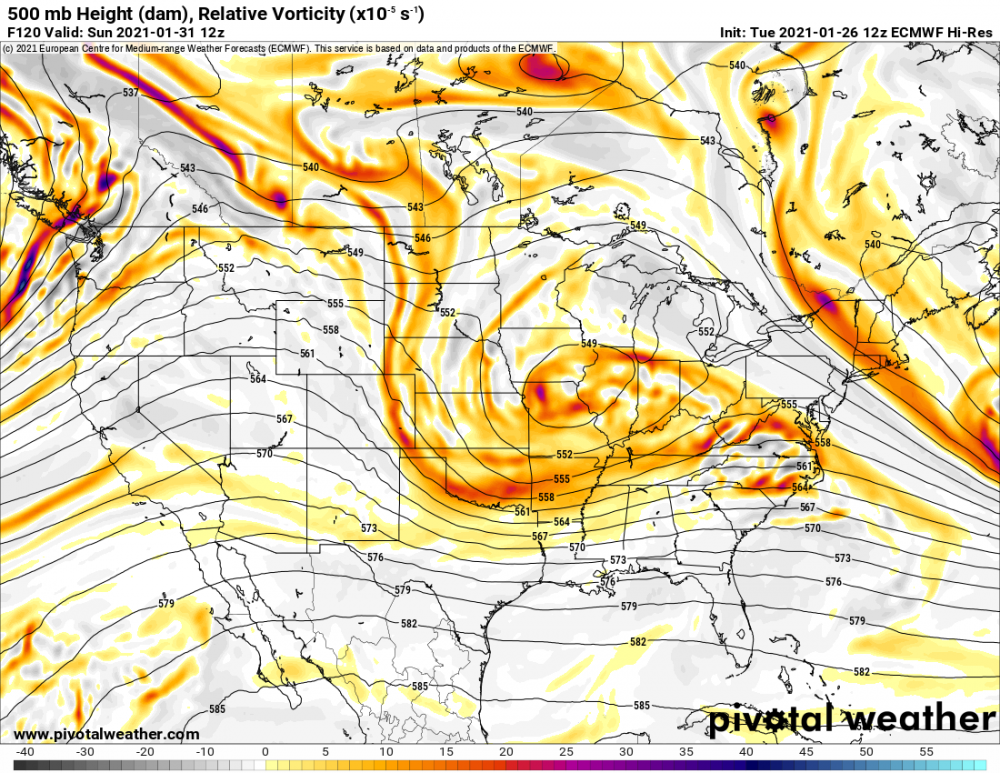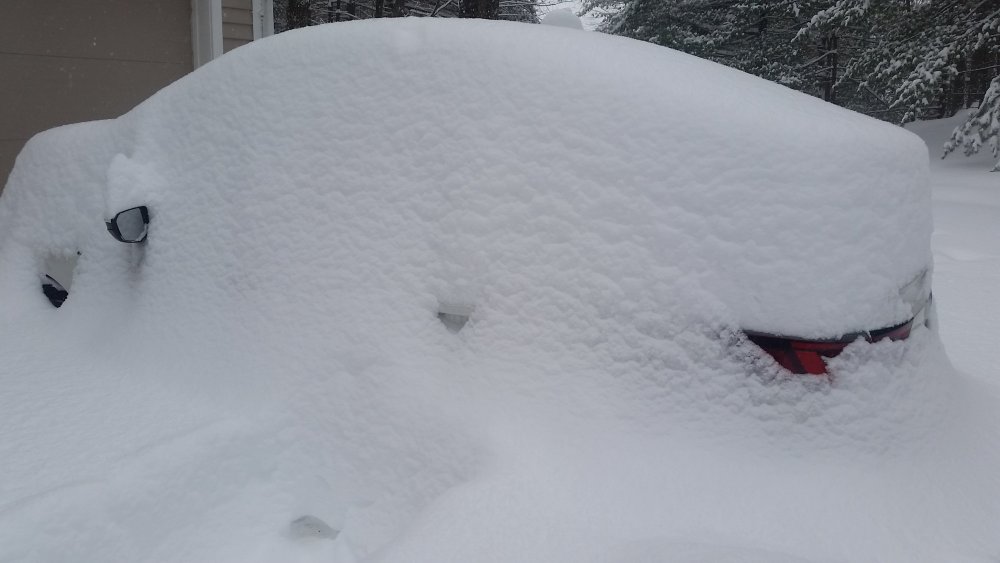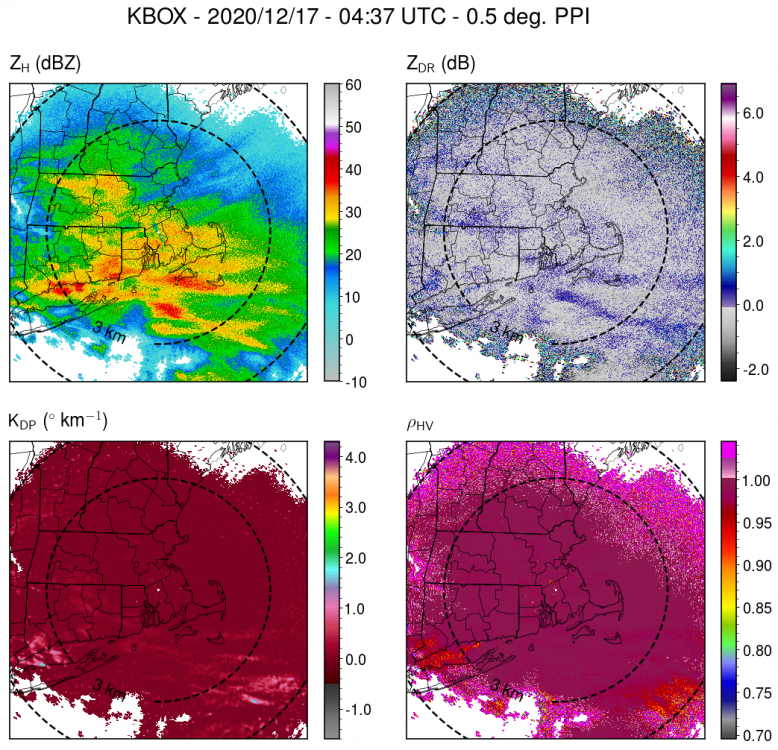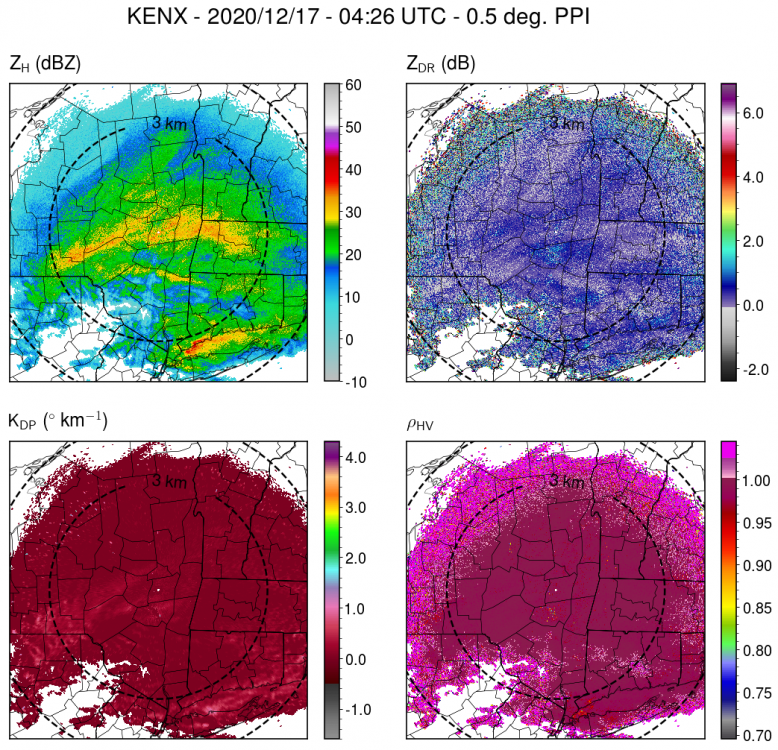-
Posts
1,619 -
Joined
-
Last visited
Content Type
Profiles
Blogs
Forums
American Weather
Media Demo
Store
Gallery
Everything posted by heavy_wx
-
-
All snow now with large, wet aggregates.
-
Mix of rain and wet snow here.
-
If surface temperatures were a couple degrees below freezing, I would feel more confident that ratios would be > 10:1. But while the antecedent air mass is fairly cold, there isn't a much of a surface high or mid-level confluence to our northeast promoting a low-level flow of cold air. Surface melting during the precipitation will definitely reduce ratios.
-
Yes, this is a much better sounding compared to what we saw last Sunday, where cloud tops were only around -10C. There's also some convective instabilitiy at cloud top near -20C that would be favorable for ice crystal generating cells; when these ice crystals fall into the saturated dendritic growth layer below, they grow rapidly and stick together, forming fluffy aggregates. If these profiles simulated by the 3-km NAM were to verify, I think the snow-liquid-ratio would be > 10:1 with fairly intense precipitation rates. FWIW, the profiles on the 06z-GFS have similar features around this time.
-
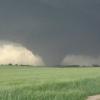
Jan 31st - 33rd Storm Obs and Disco like it's 1979
heavy_wx replied to Bob Chill's topic in Mid Atlantic
Moderate snow with low-density fluff in this band. Reminds me of lake effect. -

Jan 31st - 33rd Storm Obs and Disco like it's 1979
heavy_wx replied to Bob Chill's topic in Mid Atlantic
Getting some moderate-sized aggregates now in North Laurel. -

Jan 31st - 33rd Storm Obs and Disco like it's 1979
heavy_wx replied to Bob Chill's topic in Mid Atlantic
Actual light snow here in southern Howard County. -

Jan 31st - 33rd Storm Obs and Disco like it's 1979
heavy_wx replied to Bob Chill's topic in Mid Atlantic
Finally getting some bigger aggregates and moderate snow within the higher reflectivity area from PG County into Howard County. Correlation coefficient and ZDR suggest that southern AA and PG county are starting to mix. -

Jan 31st - 33rd Storm Obs and Disco like it's 1979
heavy_wx replied to Bob Chill's topic in Mid Atlantic
Snow growth here in southern Howard County is still quite poor, with small single crystals. -

Jan 31st - 33rd Storm Obs and Disco like it's 1979
heavy_wx replied to Bob Chill's topic in Mid Atlantic
Mostly needles in the lighter snow outside of the heavier bands here. Not too surprising given cloud-top temperatures in central MD are only around -10C. -

Jan 31st - 33rd Storm Obs and Disco like it's 1979
heavy_wx replied to Bob Chill's topic in Mid Atlantic
Getting larger, more aggregated snow now corresponding to higher reflectivity (>20 dBZ) and ZDR closer to 0 dB. -

Jan 31st - 33rd Storm Obs and Disco like it's 1979
heavy_wx replied to Bob Chill's topic in Mid Atlantic
Light snow with tiny flakes here. -

Jan 31st - 33rd Storm Obs and Disco like it's 1979
heavy_wx replied to Bob Chill's topic in Mid Atlantic
Light snow here in southern Howard County with minimal accumulation so far. -
There's a pretty consistent emergence of a warm layer on most guidance between ~800-900 mb (except the GEM/RGEM) ; 850-mb temperatures generally get above freezing up to the MD-PA border between 06-12z on the Euro. The duration of snowfall from the coastal low will depend on the degree of mesoscale forcing and the low track, and these features are highly correlated since the best mesoscale forcing is north of the 700-mb low.
-
The 700-mb temperature gradient is definitely tighter on the 12z GFS compared to 06z, leading to greater frontogenetic forcing over the I-95 region. The model is also a bit colder, but its forecast boundary layer is still warm enough for rain for a time near and SE of I-95. If the stronger dynamics verify, I think the boundary layer could be less of an issue, especially given the favorable surface high position in SE Canada. Of course we could have those issues if the models end up developing the surface cyclone farther northwest.
-

January Storm Term Threat Discussions (Day 3 - Day 7)
heavy_wx replied to WxUSAF's topic in Mid Atlantic
Lovely bifurcation of the mid-level flow! The resulting confluence promotes anticyclogenesis south of James Bay and cold-air damming into the mid-Atlantic. -
Light to moderate snow here with a coating on the ground.
-

January Storm Term Threat Discussions (Day 3 - Day 7)
heavy_wx replied to WxUSAF's topic in Mid Atlantic
Good question; I'm not sure if the differences in the shortwave evolution are caused by something inherent in the model dynamics or differences in the model initial conditions. -

January Storm Term Threat Discussions (Day 3 - Day 7)
heavy_wx replied to WxUSAF's topic in Mid Atlantic
Yes, the GFS keeps the 500-mb shortwave mostly coherent as it propagates from AZ on 12z Tuesday to the OH river valley, where it acquires a negative tilt.The shortwave on the Euro loses its coherence over the southwest, keeping some of the energy delayed as the feature moves eastward. The result is a flatter, positively tilted shortwave that produces less favorable interaction with the developing surface low. There's definitely potential with this system for snow in the mid-Atlantic, but I think there's too much uncertainty right now in how these features will evolve to be confident in any operational model solution. -

Dec 16-17 Storm OBS Thread
heavy_wx replied to BuffaloWeather's topic in Upstate New York/Pennsylvania
- 693 replies
-
- 10
-

-
I plotted it from the level-2 NEXRAD data (https://registry.opendata.aws/noaa-nexrad/).
-
Just into the band here in Albany, finding a lot of dendrites and moderate-sized aggregates of dendrites. Corresponds to enhanced reflectivity, KDP, and ZDR within the band from KENX.
-

Dec 16-17 Storm OBS Thread
heavy_wx replied to BuffaloWeather's topic in Upstate New York/Pennsylvania
Some light snow started here within the last half hour just NW of Albany.


